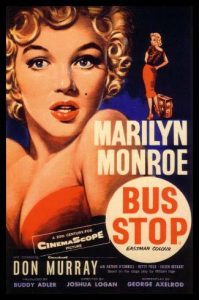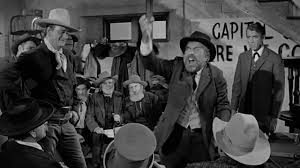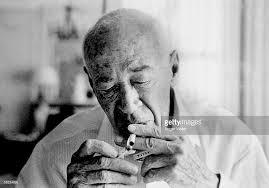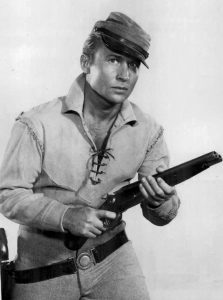Bill Engleson's Blog, page 3
September 14, 2017
Bus Stop: A Great Marilyn Monroe Film, A Heck of a Hollies Hit, and a Somewhat Improvised BC Government Child Welfare Policy…or decree
Introduction
A few days ago, I overheard a radio discussion with Adrian Crook about his recent interactions with MCFD. I was attracted to his dilemma because, unlike many who have been the subject of oversite (or intrusion) by the Ministry of Children and Family Development, he seemed gracious enough to opine on the necessary work often performed by the Ministry.
His position, however, was that, in his case, MCFD overreached.
What was the concern?
Apparently, it was an anonymous report that four of his five children were riding the bus without appropriate supervision.
I won’t bother to describe the full situation as he more than adequately covers that and a host of related issues in his blog, https://5kids1condo.com/ For example, there is inconsistency across Canada on the age with which children are free to be unsupervised. Children mature at different rates of course and this fact alone has caused our host of Governments to wander around in confusion. Crook explores that imbalance in how Canada thinks about its children. He is a fine researcher and a very strong writer.
Here is another e-take on the situation Adrian Crook and his children faced. http://nationalpost.com/opinion/adrian-crook-the-government-came-after-me-because-i-let-my-kids-ride-the-bus-alone
Unless there is some other issue within the lives of Adrian Crook and his kids that I know nothing about (as it should be, of course, but in this situation, nothing untoward immediately jumps out at me), I find the process of examination, of scrutiny that his family came under by Child Welfare authorities somewhat disconcerting.
My Take
As a Retired Child Protection Worker, I try not to second guess those currently doing the work. There are always factors outsiders, even those who are intimately involved, are blissfully unaware of. Nevertheless, as an exercise, I have tried to imagine what I would have done if I had received the complaint that four children were riding a public conveyance…to whit, a bus…without the benefit of responsible supervision.
Step 1: I would have checked our records to see if this was a first complaint.
Step 2: Assuming this was a new complaint, that there was no previous child protection history, and that there were no other factors given, I most likely would have initially done a Community Check. This might involve contacting responsible adults who might know the family. For example, the School, the Family Doctor, or Public Health nurse. (I should add here that I may not have been given much information by the complainant. For example, was it a stranger calling? If it was, did they have names, ages, and such? If they were a stranger, how would they know names.) My guess here is that the caller had some identifying information and thus was an acquaintance.
Step 3: In the scheme of things child welfare, a gaggle of children of various ages riding a bus to and from school is not an earth shattering concern. (Here I need to speculate that as Adrian Crook lives in downtown Vancouver and his ex-wife lives elsewhere and as the children apparently split their time between their respective parents, that the bus ride of 40 or so minutes takes them to the school they attend near their mother.)
Step 4: Not really a step four; initially just a caveat. Throughout an assessment, risk is always being measured. The tools available these days are undoubtedly more sophisticated than in my day. For my purposes here, I have few tools available. So…the real Step 4. At this point, I would undoubtedly run the situation by a supervisor. If we had names and if we had spoken to the school and if the school had expressed almost any concern about the well-being of the children, the most likely course of action would be for me to interview them. In many case, especially if there were relatively significant concerns, for example, abuse or more serious neglect concerns, I would conduct the interviews at the school (if they were still there and not gone home.) If there no concerns expressed, nothing else percolating, festering, my probable course would be to call the father and arrange a home visit. Quite likely, I would want to talk with the children individually in their own home. Ideally that would be with no parent sitting in (always the referred course of action.) Occasionally, depending on the concern, I might waive that request if there were reasonable objections. The bottom line in any child protection investigation is to garner the unvarnished view of the children.
Final Thoughts
I would like to say that I simply do not understand the decision by MCFD to insist that Adrian Crook accompany the children on the bus. His explanation that he spent two years training his children to feel strong and independent on the bus makes eminent sense to me. Truth is though, I do understand how difficult it must be to permit an unusual or slightly akilter act of parenting (dictated by necessity, I believe.) The reality is that parents part, kids share their lives, school becomes complicated if the parents live inconveniently far from each other. And systems are not kind to those who make what some might call a risky decision. There is always risk. Kids in care in my time were not necessarily allowed to attend activities that might…might, mind you…result in injury. Skydiving, for example. I do admit it would not have been my cup of tea and, to the best of my recollection, no youth in my care ever expressed an interest.
No matter what I think, Adrian Crook has wisely succumbed to MCFD’s cautionary request. Whether the new Minister, Katrine Conroy, will bring a more reasoned approach to the Ministry is anybody’s guess.
Or the Hollies…
[contact-form]
July 27, 2017
Politicians, The Press, a couple of great old movies, and the ways of the world…
Recently, to escape all things Trump, I caught a few minutes of one of my favorite films, The Man Who Shot Liberty Valance. (I freely allow that I hear Gene Pitney’s classic take of Burt Bacharach and Hal David’s song, the man who shot liberty valance, every time I watch the film even though it was never in it.) The scene I caught was more than half way along in the film. Folks south of the Picket Wire were gathering in the Shinbone town saloon to select two delegates to a convention that would vote on Statehood. Jimmy Stewart’s character, Ranse Stoddard, had been drafted to run the meeting. He had also informed the assembled that drinking and voting were not legally compatible activities.
After a series of nominations, refusals (by John Wayne’s mostly unflappable, ultimately tragic character, Tom Doniphon), and an over-the-top Lee Marvin (aka Liberty Valance) act of intimidation, one of the nominees, Dutton Peabody local publisher of the town paper, (played with his usual brilliance by Edmond O’Brien) offered his view on the respective merits of his craft and politicians:
*: [protesting his nomination to the statehood convention] No! No! No you don’t! No! I… I’m a newspaperman, not a politician! No, politicians are my meat – I build ’em up and I tear ’em down but I wouldn’t be one I couldn’t be one – it’d destroy me – gimme a…
: Bar’s closed.
: Good people of Shinbone, I… I… I’m your conscience – I’m the still, small voice that thunders in the night. I’m your watchdog that howls against the wolves! I’m – I’m your father confessor! I… I… I’m… what else am I?
: Town drunk?
And there it was I thought, a pretty accurate summary of how people, even today, view politicians. As for Peabody’s view of the Press, well, the Fourth Estate has fallen from the grace it was once afforded, at least in that John Ford movie.
Hollywood has undoubtedly helped me form my biases about these two career paths. Jimmy Stewart, much earlier in his cinematic life, went to Washington, albeit as Mr. Smith, the most idealistic political soul you could ever envision.
In 1947, he brought a stunning hard-boiled journalist to life in another film favorite of mine, Henry Hathaway’s, Call Northside 777.
Once one steps away from the Hollywood version of reporters and politicians, you, or at least, I do, land smack dab in the todays real world exemplified (whole hog) by Donald J. Trump and CNN.
Perhaps Donald Trump once imagined himself a latter-day Mr. Smith. Going to Washington, dredging the swamp, the same swamp Jimmy fell partial victim to back in that fine and inspiring 1930’s film.
Even as I write this, I shiver with the orange ghost of irony creeping down my spine. In my time, like many, I suppose, I have taken the occasional pot shot at politicians. I continue to every once in a while even though I generally subscribe to the notion of the value of an orderly, democratic society.
Back to The Man Who Shot Liberty Valance. There is a flow in the film, a movement at once abusive and optimistic, a wild and wicked place where bullies such as Valance operate with relative impunity.
Though Valance carries on the way bullies do, you always know he will have his comeuppance.
As for politicians, even though I occasionally take my cheap sorts, I’ll give them this: they word hard. Most of them, anyways. They shape our world positively, collaboratively. A few excel. Most others work in isolation, without a spotlight. Even in our wired world, there are only so many spotlights.
Later in the film, after having been beaten to a pulp, Dutton Peabody arises from his own drunken but honorable ashes and assumes his elected role as delegate.
I consider this resurrection an ode to the virtue of political engagement.
Back to the real world. The world of a current reality.
Trump is a blip. A stone in the shoe of democracy. It may take a few more viewings of Liberty Valance to totally hammer home that there are good decent people wearing political garb and that I should be a little more cautious in slamming the entire profession.
Meanwhile, on a provincial level, a new BC Government has assumed power. The New Democratic Party and three Green MLA’s are teetering on the edge of a simple majority, when needed. It is an exciting moment for the province. Hopefully, the partnership, the amalgam, the shared values of forty- four elected representatives of the people will engender a rousing and ground breaking legislative experience and counterbalance the oddity that is unfolding south of the border.
*IMDB (Internet Movie Data Base)
[contact-form]
June 26, 2017
Who put the Angst in Book Angst?
Summer has arrived. On Denman Island, one of the things that means is that the Denman Island Readers and Writers Festival is just around the corner.
I generally take a course or two, this year one from Charlotte Gray and the other from Andrew Struthers, eat the odd fabulous meal, attend a few Main Stage Events (stimulating conversations on life, literature, the world) and, on many occasions, read one of my written works. Last year, after a ten-year run, I took a break. Others were relieved, I’m sure.
But this year, I am back and will be reading on Friday, July 14th in the late afternoon along with four other local writers.
On Sunday morning…well, what the heck, here is the list (and our allotted time.) Of course, it could all change, writers being who they are, who we are.
Beginning at 4:15 p.m., Friday, July 14, 2017 in the Activity Centre Gym
Del Philips (12 minutes)
Charlotte Barrow (10 minutes)
Jan Florian (12 minutes)
Dawn Stofer (12 minutes)
Bill Engleson (12 minutes)
Beginning at 9:15 a.m., Sunday, July 16, 2017 Community Hall front stage
Denman School student (5 minutes)
Denman School student (5 minutes)
James (Butch) Leslie (12 minutes)
Lorraine Martiniuk (10 minutes)
Karl Goodwin (12 minutes)
Dante Ameriel (10 minutes)
Daryl McLoughlin (10 minutes)
Valerie Raoul (10 minutes)
Stewart Goodings (10 minutes)
Jo-Anne McLean (12 minutes)
Although most years I write something special for the occasion, I have begun to make a habit (if once could be called habitual) of reading from my latest book.
As I have only had two books published, this year I will read one of my earliest essays immortalized in my latest (second, okay second) book, Confessions of an Inadvertently Gentrified Soul. The essay is called Book Angst and is a homage to libraries, courageous volunteer librarians, my Cousin Bob, and Henry Miller. It is a somewhat unseemly essay, one I would hope Henry Miller might appreciate.
[contact-form]
May 20, 2017
Some Possibly Politically Incorrect Thoughts on a Weekend when my Old Back Aches…
As I grow older, an endeavour I seem incapable of escaping, the urge to be politically incorrect rises up in me like a hoary old Phoenix, even as I more fully understand the tragedy of the great inequities, the imbalances, the grand grievances of the past.
I am, alas, a product of the post-war years. I was nurtured by parents who were in their teens during the early part of the Depression Years, and nourished by television programming in the 1950’s and early 1960’s.
Recently, as I followed not only a severe (and mind-numbing) dialogue about cultural appropriation and several interesting American activities, Presidential observations, FBI Director firings, Confederate General Statue dismantling’s and the like, my somewhat obtuse mental faculties rescued me with thoughts of one of my favorite Jimmy Stewart films, The FBI Story, which came out in 1959 and told a rather long series of tales meant to capture the breadth and the sweep of the FBI up to the late 1950’s.
By some measure, it is not a great film but I have always loved its ambitious scope.
Go figure. My taste has always been questionable.
One of the first stories in the movie, ripped from the files of the FBI, has the late troubled actor, Nick Adams (and I realize many people have forgotten Adams who died much too early in 1968 of a drug overdose -of some kind.) as the smarmiest of home-grown terrorists.
That same year, Adams starred in a wonderful western, The Rebel. The theme song, The Rebel, Johnny Yuma, was sung by the exquisite Johnny Cash and the music and lyrics still reverberate up and down my spine.
The Rebel not only reflects the anomie of postbellum America after the Civil War but anticipates the angst America would experience in, during and after Vietnam. In hindsight, which for some is 20/20 but for me, barely 20/200, it is a prophesy of life that would unfold in the late sixties.
Johnny Yuma, the character, is a soldier who survived, a writer trying to document the world he now encounters as he wanders the west. I don’t want to exaggerate its cinematic or television value. It was however, for me, a thrilling show to watch as I moved into my teens. I wasn’t especially concerned about the actual causes of the Civil War. In some respects, I am still not. As New Orleans removes several statues that glorify the Confederacy, I have no personal stake. I do wonder though about how history is interpreted, preserved, corrected by the removal and eventual relocation of these monuments.
There may be statues honoring the simple average confederate soldier out there, just waiting to be sanitized. I doubt anyone ever put up a Nick Adams-themed Johnny Yuma statue, but, as with many things, I could be wrong.
My point in this post is to prove beyond doubt that I like to wander all over the landscape of ideas, dabble here and there, and, generally, end up lying flat on my back, wondering what the point was.
And mostly, and for this I apologize for any unpleasant images it might create, I have always loved to warble “Johnny Yuma Was a Rebel” in the shower, even after all these years.
[contact-form]
April 16, 2017
Some Reflections on the Passing of the Poet, Walter Hammersley
I t is National Poetry Month. This piece of flash fiction honouring the imaginary poet Walter Hammersley, and referencing Lawrence Durrell, was written some time ago. I hope you enjoy my confection. At the end, I am adding Durrell’s lovely poem, This Unimportant Morning. That should make the post all the more worthy.
Some Reflections on the Passing of the Poet, Walter Hammersley
“Bulbs of light hung from every tree branch.
Bulbs of dark waited in the shackled wings.
Above, like some pending avalanche,
A bevy of beautiful, deadly things.”
I read the pithy poem a couple of times. Silently. Then aloud. “That’s it?” I asked.
“Yes,” Deirdre nodded, “That’s it.”
“It’s kind of short. I thought you said Walter was working on it for months?”
“Yes, he…he locked himself away in his office every morning at nine and didn’t emerge until three in the afternoon. Except, you know, ablutions, snacks, and such. And sometimes…just to spend a few moments with me, touches…loving moments.”
“I was expecting…more. He knew the deadline. And really, he has written so many fine books of poetry. I never imagined he would just…freeze up…”
Deirdre smiled. “Walter was never at a loss for words, Henry. He always seemed to know where he wanted to go with his homage to Durrell. That is how he started his day, reading that delightful poem of Larry’s…This Unimportant Morning…he told you, didn’t he, that that was where he got the book’s title from…Her Blue and Sun Washing…?”
“We had discussed it,” I told her. “I confess,” I added, “I thought the whole project just a trifle obscure. I told him so more than once but he was adamant that Durrell was due for a resurrection…and I acknowledged that Durrell was a fascinating guy…but he didn’t produce a raft of poetry…”
“More tea,” she offered.
“Of course,” I said, always pleased to be in her company.
She repaired to the kitchen.
I walked over to the patio’s stone balustrade. Staring out at the marvelous Aegean, I considered what we had lost.
Walter Hammersley had lost his muse.
Deirdre has lost her lover.
And the world has lost a poetic bulb of light.
Lawrence Durrell
[contact-form]
February 25, 2017
Some thoughts on Broken Promises: Alex’s Story
I have just finished reading the latest (and Bernard Richard’s first) report from the Office of the Representative for Children and Youth, Broken Promises: Alex’s Story.
It is a devastating document that details in so many small and a few much more corrosively larger ways how one child, Alex Gervais, was failed to be nurtured by his biological family, (some, though not all,) The System (s) that assumed control of his life at a different stages AND many of those same people, those who worked and may still work in The System, those who made the chilling ongoing day to day and life decisions that impacted this child, this teenage over many, many years.)
I know, from my somewhat antediluvian experience as a social worker, that the files that are kept by the System, composed in neutral, factual, fearless ways, in no way capture the full story of the children and families they attempt to document. Documentation efforts may have increased and been improved upon over the intervening years but even with the increasingly compulsory nature of the child welfare system to document and the efforts to improve tracking and planning, the reality is that contracting out of residential care has amplified exponentially and direct social work, carefully crafted personal support, has suffered a great dissimulation over time.
There are so many excerpts from the report which do offer evidence of the awkward austerity of service delivery to Alex. The following describes his care journey from December 2004 until May 2006.
“Between that day, when Alex first came into care under the VCA, and May 2006, he was moved between nine different foster homes. There was no planning for any of these moves between foster placements, which included his first hotel stay at the age of eight – a two-week stint in a Best Western Hotel with a revolving door of child care workers looking after him. Often Alex was told, without any advance notice, that he was moving to a new placement. Case notes document the reasons for his many moves as being related to his “challenging” behaviours, which included destruction of his personal belongings, angry outbursts and aggression directed at other children.
Ironically, case notes prepared in January 2005 contained the observation that: “Behavioural difficulties tend to be reduced with a stable living environment.” However, when interviewed about the rationale for Alex’s high number of placements, social workers said that permanency for Alex was not a priority because his VCA status meant that he would eventually be returned to his father and stepmother.” Pg. 11
I suppose I am being a backseat quarterback. Alex was 7 ½ in December 2004. Finding the best placement for each child is not a simple task but I expect most social workers, not to say the general population of everyday backseat quarterbacks, would agree that nine placements over eighteen months would be devastating, even for an adult, let alone a child not yet ten. That one of those stays was in a hotel says more than enough for me to know that the system was in panic mode.
Later in the report, the full measure of system dysfunction is unravelled. What becomes evident is that the business of child welfare overwhelms the caregiver role. It is a reality that the Child Welfare system needs placement options. When they are delivered in large quantity by a few providers, social workers have to tread carefully, not upset the resource applecart.
This powerful and damning point was made incredibly clearly in the report.
“When the Representative’s investigators asked MCFD officials why there was a lack of appropriate financial oversight on even basic financial matters, the answer was the same as the response given for the ministry’s failure to meaningfully oversee practice issues. Namely, that with respect to arm’s-length businesses contracted to look after youth such as Alex, it is generally left up to the agency to decide how contract funds are to be spent, and to ensure they are being spent appropriately. In this case, agency oversight appears to have effectively meant no oversight, which was at times tantamount to gross negligence.” Pg.’s 45-46
My Final Thoughts for now:
Though I believe that as many people as possible should read this report, I imagine few likely will. It is a difficult read and almost always alarming, concerning, gut-wrenching. It is also just another in a litany of reports on the failures of the BC Child Welfare system.
There is no comfort to be had in the slow unrolling of these excruciatingly devastating, albeit essential reports.
Make no mistake, I believe there are successes in Child Welfare. How many and for whom will hardly never be the story told. These successes are a result of workers doing their job quietly, systematically, professionally, gaining the bureaucratic buttresses they require, exhibiting the excellent qualities one would want in social workers, in the myriad supports systems in play.
But the inability of the system to ameliorate its clearly identified, ongoing failures, the failure to provide adequate staffing, the failure to provide and monitor sufficient resources, the failure to imbed a practical means of self analysis and criticism, means that deaths will in all likelihood continue, and that young people in the care of the State will be offered a lesser service, a lesser quality of life and access to healing, to opportunities that all children, especially children in care, so richly deserve.
[contact-form]
January 29, 2017
A Noirish Night Late in January, 2017-a very modest post.
I spent a lot of this past Saturday respecting the environment by not burning oodles of slash and blowdown I’ve accumulated over the fall and winter. I trust that my inclination for sloth was not the sole cause.
My absence of immolation on Saturday was filled with stories on the news about Trump, Trump the President, and Trump the Troll.
More than Trump and his machinations, I am meandering through the inevitability of aging, of embracing my upcoming threescore and ten, ominously poised to descend in March.
An old film friend, by which I mean a favorite film, The Late Show, starring Art Carney and Lily Tomlin, appeared Saturday on TCM. More than when it was released in the late 1970’s it now speaks to me much more crisply about age and adjustment. Briefly, the film is about an over the hill private detective hired to find a cat. The story expands quite a bit, beginning with the shooting death of another private eye, Harry Regan. (Incidentally, apropos of little, the classic Bogart/Philip Marlowe film, The Big Sleep, revolves partly around the disappearance of an old drinking buddy of Marlowe’s, Sean Regan.) Coincidence? I think not.
Anyways, the whole point of this post is to offer this soliloquy by Ira Wells, Art Carney’s character, as he describe his world view. For some reason, I see it as a writer’s statement that suits me.
: Listen, doll, let’s get one thing straight. I’m a loner. I always have been a loner. I was a loner when I was a kid. I was a loner when I was married. Probably why we broke up. I’m by myself now because I like it that way. Nothing personal, but I don’t like to talk about it. There’s too damn much talk in the world as it is.
And maybe, just maybe it’s also a statement about Trump, how we are consumed by talking about him, being dragged, kicking and screaming to his pointless precipice.
[contact-form]
January 21, 2017
The Little Voice in the Head of Donald Trump in the Wee Hours
“Pssst. Donnie. It’s me. Wakey wakey.”
“Oh, give it a rest, Little Voice. I tired. Let me sleep.”
“If only I could, Donnie. But you know me, no rest for the wickedly precise. And you know who started tsunami twittering. It surely wasn’t me.”
“Holy Bad Trade Deals, Little Voice. I need my sleep. I know I’m in GREAT condition but this Presidential gig is shaping up to be quite demanding. And I am getting a lot of flack for twittering.”
“Donnie, Donnie, Donnie. You really don’t care about the crooked fake media and what they have to say?”
“Of course, I don’t.”
“Then why hesitate for a moment. Your twitter world awaits. You can’t slack off now. And besides who said ‘my twitter has become so powerful that I can actually make my enemies tell the truth?’”
“That sounds familiar.”
“Those are your words Donnie. Words written by, and here I am paraphrasing, ‘your long and beautiful fingers.’”
“They are long and beautiful, aren’t they Little Voice?”
“You are long and beautiful, Donnie, every presidential inch of you. One key ingredient is your people. They need to hear from you. Roosevelt had his Fireside Chats. You have Fireside Twits. Nightly. You can’t let up.”
“Little Voice, you are so right. If I take my foot off the twitter pedal, I’ll be letting my people down.”
“Give ‘em twitter hell tonight, Mr. President.”
“Roger, Little Voice. Thanks.”
Barely the End
This little flash fiction piece was written for Thursday Threads this week, a weekly flash fiction site I contribute to regularly. As I watch the marches around the world by people who are rightly concerned about the Trump Presidency, as well as having just watched a very fidgety Trump at the National Prayer Service, a man seemingly uneasy in quiet, reflective moments, I cannot help but wonder how he manages it all. Regardless, this story was meant to have a little fun with Donald’s decision making process though I am grounded in the reality that the days and months ahead may be bereft of sufficient joy.
[contact-form]
January 18, 2017
The Television World of Child Welfare…some thoughts.
The world of child welfare and social work has never been portrayed all that well or all that frequently on television. I have posted before about East Side/West Side, the gritty 1963/64 George C. Scott, one season wonder. Canada has also touched lightly on the world of teens and social work in a mostly lighthearted sort of way with the 1981-87 series about a youth center, Hangin’ In.
There may have been others but none immediately spring to mind.
Recently, I have been watching The Fosters on Netflix. For those unfamiliar with this series, it is set in San Diego and has been running for four years. Here is a cribbed summary of the show, taken from an IMDB review.
“ As the title implies, The Fosters is a show about a foster family but with a nice modern day twist – there are two moms instead of a mom and dad, the eldest son is the biological son of one of the moms from a previous marriage, and then there are the twins, a boy & girl, recently adopted by the family. This is a show concerned about all the people who fall outside of the traditional family existence, about the children who need another family to take them in. And they make it interesting! Really can’t emphasize this enough, there was obviously a great effort employed to combine the serious and complex issues with the need to entertain to tell the story, and they did brilliantly, i wasn’t bored for a second.”
There are a ton of episodes (77) and, as I write this, I have binge-watched twenty.
Impressions:
Several themes in The Fosters resonate with the Canadian Child Welfare experience, at least my understanding of the British Columbia experience.
Cultural and gender diversity, abandonment, selfishness, drug usage, violence, love, and sexual awakening are but a few.
While there is a sanitized sheen in The Fosters about the kids, the foster home, and the Charter School they all attend (and where one of the Moms is the Vice Principal,) not to mention one ethical issue that pops up quite early elsewhere, probably for dramatic effect (one of the foster moms is a cop, her ex is a cop and they are partnered up in the first episode and I found this plot thread a tad weak, and unrealistic,) there are some equally engaging and believable issues covered (amidst the occasionally soap operatic writing that uses way too many secrets and things not said or shared to advance the various plotlines.) For example, sexual abuse in the foster system is addressed as is Independent Living (a service to youth in care that can see them living on their own as early as age sixteen.)
Another theme given a large stage is foster care drift. I don’t recall it being named as such but it appears at almost every plot turn. Drift is a significant issue and worthy of more time tan I am allotting here.
The search for stability, the trade-offs, the barriers, these enter the story lines of The Fosters. Are all the episodes gritty and realistic? No. Are they less than they could be? Yes. Do they touch on a host of issues that push forward understanding of the world of care? I believe the story lines do.
On a final note, in the twenty episodes I have watched, social workers don’t seem to have much visibility. There are zero to none home visits. BC Social Workers are expected to visit foster homes regularly.
Ironically, in the first episode, the regular social worker, BILL, is busy with other cases. We don’t even see him.
Now, that I found eminently believable.
[contact-form]
December 22, 2016
A Little Sixties Nostalgia late in 2016…
It is a couple of days before Christmas.
I have just watched an NFB documentary from the early 1990’s called Dream Tower. It tells the story (or, maybe, most of the story) about Rochdale College. If you haven’t heard about Rochdale, well it was a grand and ultimately failed experiment in Free University and Student Housing, one of the best and perhaps one of the worst ideas to go up in smoke from the 1960’s.
I briefly visited Rochdale in the fall of 1969. It was on its last legs then. It did hang on for a few further years. That brief visit was both exciting and somewhat sad. Rochdale had been overrun by unmanageable numbers and fiscal realities.
One of its founders, a brilliant guru, was Howard Adelman. Howard was a key member of the University of Toronto Campus Residence Cooperative movement, which began in 1936.
Sometime in 1966, the Simon Fraser University Student Council, and others, brought Howard out to BC to discuss creating student housing, which was, then, in short supply. One offshoot of that consultation was the formation of the Campus Residence Co-operative Association, or its more colloquial name, the CRCA, or the Co-op.
That Co-op, where I spent thirteen years, will be celebrating its 50th Anniversary in August, 2017.
Back in those heady days, many discussions occurred about expanding the reach of the CRCA. We envisioned a rural commune which would supply food and retreat to its urban counterpart. For a very brief time, plans were discussed to build a massive cooperative housing community on Burnaby Mountain.
While those grandiose dreams were never actualized, the CRCA survived pretty much as it began, two Georgian Houses in the heart of New Westminster. Even though at least a few hundred people lived there over the years, it may have been its relatively small size that allowed it to thrive.
There was a time when I imagined I would live there forever.
Part of me still does and I look forward to the reunion, whatever size it becomes. I should note that Dream Tower was written by Len Blum, brother of two early members of the CRCA.
I am always up for a little bit of nostalgia, especially from the 1960’s.
Especially at Christmas. The best of the season to one and all.
Photo: Ben Best
[contact-form]











